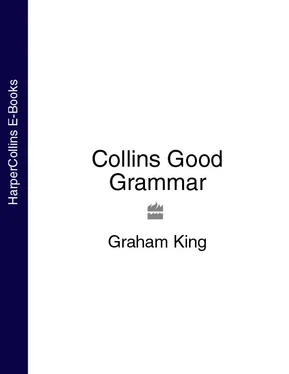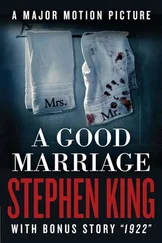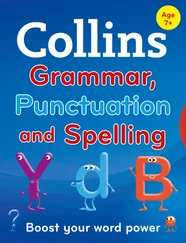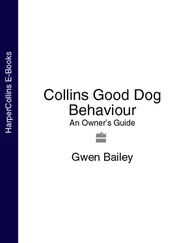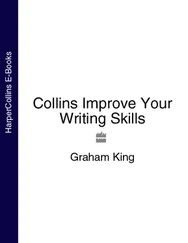And then, finally, in the quest for even greater economy, the newly-invented apostrophe was brought into play, saving yet one more word:
And, having recognised that the promise following the original question is now history – in the past – our grasp of grammar’s immense potential allows us to write:
None of this should really surprise you, because if you are a native user of English you are also an intuitive user of its grammar. Although you may have either never known or have forgotten the difference between a common noun and a proper noun; are a little uncertain about using semi-colons and possessive apostrophes; are sublimely unconscious of piling on clichés and couldn’t recognise a split infinitive even if you were offered a fortune, you have always managed to be understood, to get your point across, to enjoy reading newspapers and magazines, to write letters and cards to your family and friends, to deal adequately with the demands of the workplace.
But ask yourself: am I cringing along in the slow lane, grammatically speaking, aware of the ever-increasing traffic in the faster lanes?
More than at any time in history, you are judged on your communication skills, whether in speech or in writing. The successful development of your personal life, your relationships and your career is now more and more dependent upon the way in which you express your thoughts, your insights, knowledge and desires into language. How well you accomplish this is just as dependent upon your understanding of grammar. In so many ways you are only as good as your grammar.
Few would dispute that this is the Age of Communication. Its message is that the media are expanding exponentially. You can respond to the challenges and demands, or you can allow it to pass you by.
By reading this far, you appear to have chosen the former course. That’s courageous, and you should feel encouraged. If, however, you remain unsure or sceptical, proceed to the next section which should demonstrate to you that you probably know quite a bit more about grammar than you ever imagined.
And that will be a great start to mastering this essential and exciting skill.
Yes, you really do know more about grammar than you think. You may not know what a prepositional complement is or what it does, and may never have heard of subordinator conjunctions or modal auxiliaries – and why on earth should you?
But from an early age you acquired a knowledge of grammar that saw you through your elementary and primary schooling. Whether your memories of what you were taught about grammar are fresh or distantly hazy, pleasant or mordantly painful, a surprising amount of grammatical know-how is parked somewhere in your memory. By reading and listening to others, you added to your knowledge and developed further grammatical skills. Thus you will find that this book will often merely explain and clarify what you already intuitively know about the principles and usage of grammar.
To prove this to yourself, try the following test, consisting of twenty examples of right and wrong use of the language. Record your answers by ticking the appropriate boxes. And here’s a tip before you begin: although some grammar rules may seem harebrained, most follow logical, commonsense principles. Rather than try to analyse the examples, try to ‘listen’ to what is being said.
| 1. |
One of these isn’t a proper sentence. Which one is? |
|
A. |
Any failure of the buyers to comply with the sale conditions, the damages are recoverable. |
|
B. |
Any failure of the buyers to comply with the sale conditions may result in damages being recovered. |
| 2. |
Here’s another pair of sentences. One contains a fairly common mistake. Which one is correct? |
|
A. |
On Sunday we heard the first chaffinch sing, we have several that come into our garden for crumbs. |
|
B. |
On Sunday we heard the first chaffinch sing; we have several that come into our garden for crumbs. |
| 3. |
There’s something jarring in one of these sentences because in it there’s an inconsistency. Which one is the correct sentence? |
|
A. |
The Prime Minister, accompanied by several aides, were entertained by President Clinton at the White House. |
|
B. |
The Prime Minister, accompanied by several aides, was entertained by President Clinton at the White House. |
| 4. |
Oh, dear! There are some unwelcome and unnecessary marks in one of these statements. Which one is correct? |
|
A. |
The three shops supplied all Jim’s shirts and suits. |
|
B. |
The three shop’s supplied all Jim’s shirt’s and suit’s. |
| 5. |
Do you have an ear for good grammar? If you do you’ll quickly spot the mistake. But which sentence looks and sounds right? |
|
A. |
The public always expects us firemen to be at the scene of a fire within minutes. |
|
B. |
The public always expects we firemen to be at the scene of a fire within minutes. |
| 6. |
Although you may not know the difference between an adjective and an adverb you should easily pick the sentence that uses adverbs correctly. |
|
A. |
Bert always drove real careful, and was proud of his record. |
|
B. |
Bert always drove really carefully, and was proud of his record. |
| 7. |
Many of us aren’t sure about using among and between. Can you pick the correct usage? |
|
A. |
The ice cream was shared among the three of them. |
|
B. |
The ice cream was shared between the three of them. |
| 8. |
Something weird is happening in one of these sentences. Which one avoids a rather bizarre atmospheric condition? |
|
A. |
Tearing down the motorway at 80mph, the fog suddenly enveloped the car, forcing me to pull over. |
|
B. |
As I was tearing down the motorway at 80mph, the fog suddenly enveloped the car, forcing me to pull over. |
| 9. |
If you read these sentences carefully, you’ll see that one doesn’t make sense. Which one is clear and correct? |
|
A. |
The judge remained both unimpressed by evidence and argument. |
|
B. |
The judge remained unimpressed by both evidence and argument. |
| 10. |
Don’t get carried away by the racy prose; there’s a fundamental error in one of these sentences. Which is the sentence without the error? |
|
A. |
Then, as he lay silently beside her, she cried: A broken, hoarse cry that sprang from a buried memory of adolescence. |
|
B. |
Then, as he lay silently beside her, she cried: a broken, hoarse cry that sprang from a buried memory of adolescence. |
| 11. |
One sentence uses a word correctly; the other abuses it. Which is correct? |
|
A. |
I gazed in wonder at the diamond, one of the most unique in the world. |
|
B. |
I gazed in wonder at the diamond, thought by many to be unique. |
| 12. |
In which sentence is the question mark used correctly? |
|
A. |
Her mother was always asking? ‘When are you going to get married’. |
|
B. |
Her mother was always asking, ‘When are you going to get married?’ |
| 13. |
Frank was confused in the following sentences, but do you get confused by drink , drank and drunk ? Which is correct? |
|
A. |
It was pretty obvious that Frank had drank rather too much. |
|
B. |
It was pretty obvious that Frank had drunk rather too much. |
| 14. |
One of these sentences contains a very common error – so common, in fact, that many now regard it as acceptable usage. But if you were a careful user of English, which sentence would you say was correct? |
|
A. |
The teacher asked Judy to try and do better. |
|
B. |
The teacher asked Judy to try to do better. |
| 15. |
If you know the rule here, fine; but if not, your ear should tell you which sentence is grammatically correct. Well, which one? |
|
A. |
Every man, woman and child is requested to assemble in the departure lounge. |
|
B. |
Every man, woman and child are requested to assemble in the departure lounge. |
| 16. |
Because it asks you to decide between who and whom , this question is one of the toughest in the test. But try, anyway, to pick the correct usage: |
|
A. |
The Foreign Secretary, whom we are pleased to see is now fully recovered, will speak tonight. |
|
B. |
The Foreign Secretary, who we are pleased to see is now fully recovered, will speak tonight. |
| 17. |
Haven’t had much to do with gerunds? Never mind – use your ear to choose the sentence which is strictly correct. |
|
A. |
I hope she won’t take exception to me calling in unannounced. |
|
B. |
I hope she won’t take exception to my calling in unannounced. |
| 18. |
These sentences are worth thinking about. Which one do you think is correct? |
|
A. |
A thousand visitors is not unusual on an average weekday. |
|
B. |
A thousand visitors are not unusual on an average weekday. |
| 19. |
If you listen carefully to what is being said here, one sentence will be quite clear in its meaning while the other could confuse you. Which is the unambiguous sentence? |
|
A. |
After the game he talked at length to the captain and the manager. |
|
B. |
After the game he talked at length to the captain and manager. |
| 20. |
There are some discordant notes in one of these sentences. Which one is consistent and harmonious? |
|
A. |
If one is to live happily among one’s neighbours, you must learn to mind your own business. |
|
B. |
If you are to live happily among your neighbours, you must learn to mind your own business. |
If you are interested to know where you stand in your knowledge and use of English grammar, you should have attempted to answer all 20 questions. If you’ve made a guess at some of them, don’t feel too guilty; some guesses will be right while others will be wrong.
